Saying goodbye to a true friend after 20 odd years of whole-souled service – the owners of donkeys that have grown old do not hide their tears when they take them to an animal sanctuary. But the “Donkey valley” is not your average nondescript stable where tired animals await their end. The sanctuary, surrounded by wide open spaces, takes good care of its inhabitants and offers them every comfort.
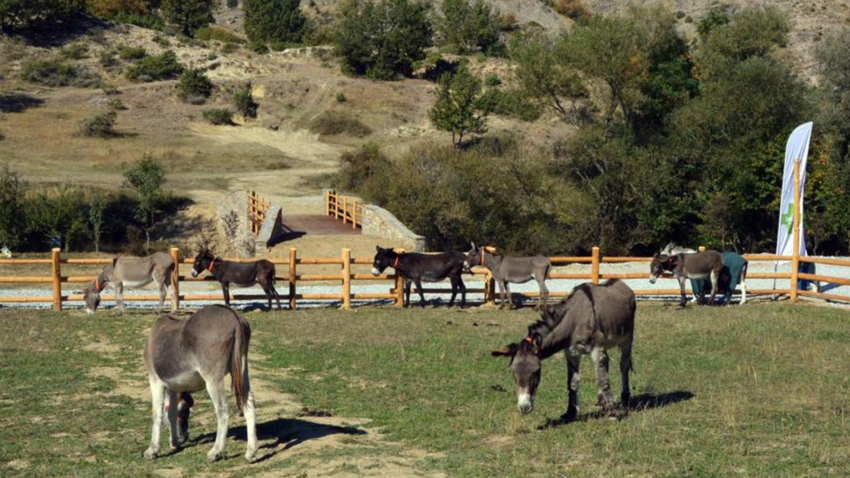
Three years ago a Swiss organization - veterinary doctors in action – built a sanctuary for old donkeys in Banichan village near Gotse Delchev to take care of the many animals in the environs. Because there is a donkey in practically every farmyard there – grown old and sick like many of their owners. And instead of ending up at the slaughterhouse or underfed and neglected, the animals can spend their old age free, surrounded by beautiful landscapes. In “Donkey valley” they are put up at one of four stables and have 25 hectares of land to roam free. There are also nine keepers and two veterinary doctors here.

“Every donkey coming to the sanctuary has a destiny of its own,” says Dr. Mario Darpatov who takes care of the donkeys in the sanctuary, plus some 15 other animals in the vicinity. Some of them can hardly stand on their legs, others are famished, most are sick. A week ago the last for now, 60th donkey came here from the village of Dolen – a 33-year-old animal, and, as the doctor says, it is a wonder it is still breathing. Because, like so many of the other animals here, it has spent its life pulling a cart, working in the field, carrying heavy loads on its back without ever taking a break.

“The usual story is that the donkeys have grown old and can no longer work in the field – the reason why their owners kept them in the first place,” explains Dr. Mario Darpatov. “There comes a time when their owners have to continue to feed them for years because they don’t have the heart to part with them. It is like abandoning your dog or your cat, that is why they continue to look after them even after they can no longer work. So, their owners just feed them and treat them like pets. The last ten years or so in a donkey’s life are usually different, and from a farm animal they turn into companions. But when the people are themselves getting old and can no longer take care of the donkeys, they bring them to the sanctuary.”
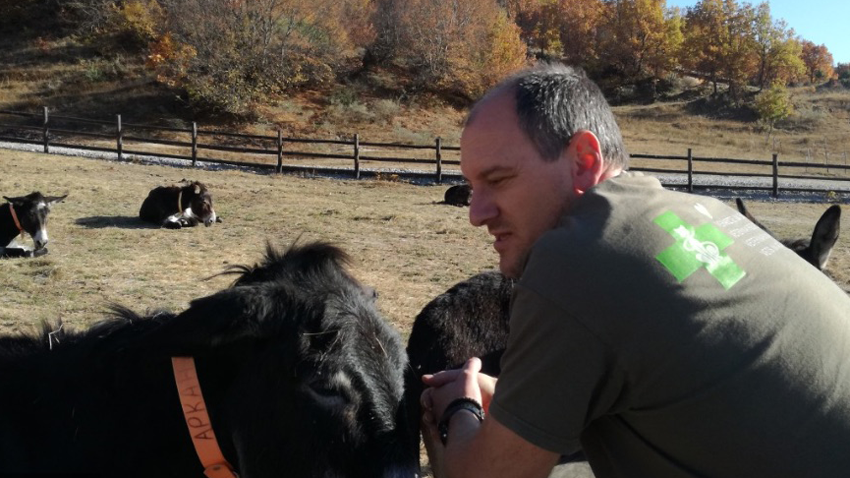
Here donkeys follow a strict routine. In the morning they are taken out to graze and, in that time, their stables are cleaned out. Apart from grazing they take snacks as well - hay, fodder, barley. And if the weather is good, they spend the entire day out in the open.
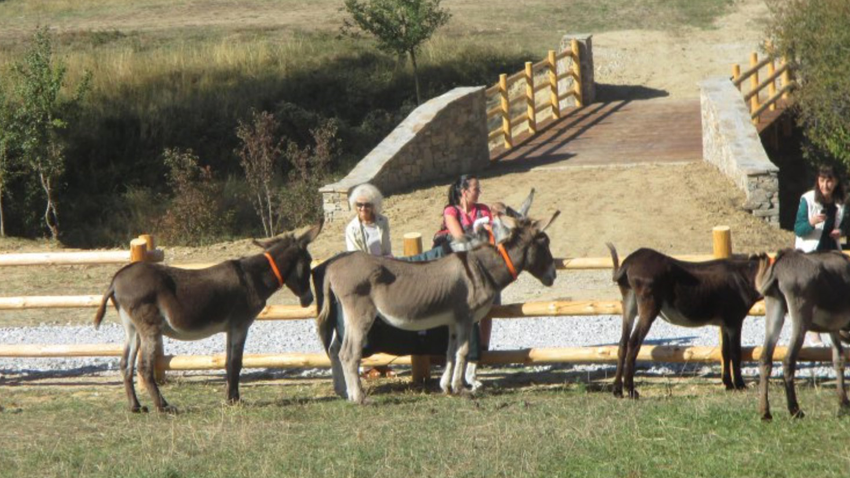
And in the evening they go home to their “beds”, securely locked in, with hay and water. And to be able to enjoy the sweet life longer, there are doctors and workers to take care of them all the year round – inoculating them, giving them vitamins, cleaning their teeth using a special machine, trimming their hoofs, combing them, giving them baths in summer and warming the stables in winter.
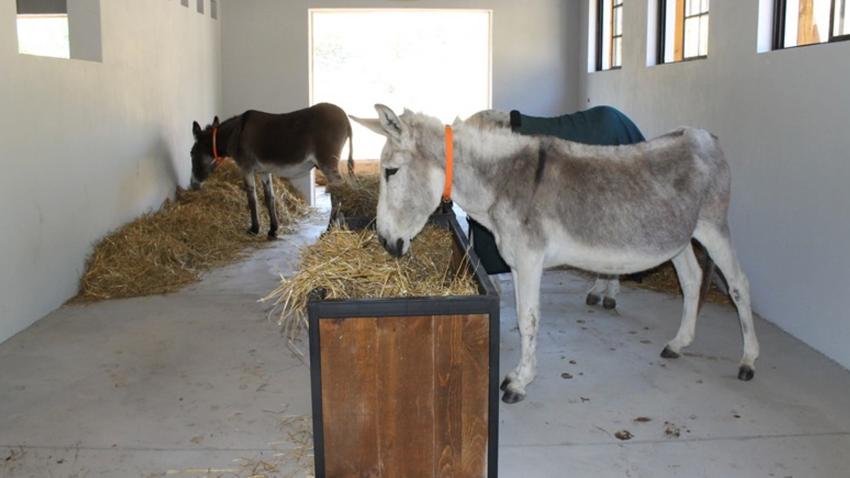
“Donkeys adapt quickly because there are many animals of this species here and they grow docile and calm,” says Dr. Mario Darpatov. “There is no way of knowing what they were like while they lived with their owners but judging by the characters I am seeing they are all obviously good animals. They love the attention, are very sociable and want to be petted and scratched.
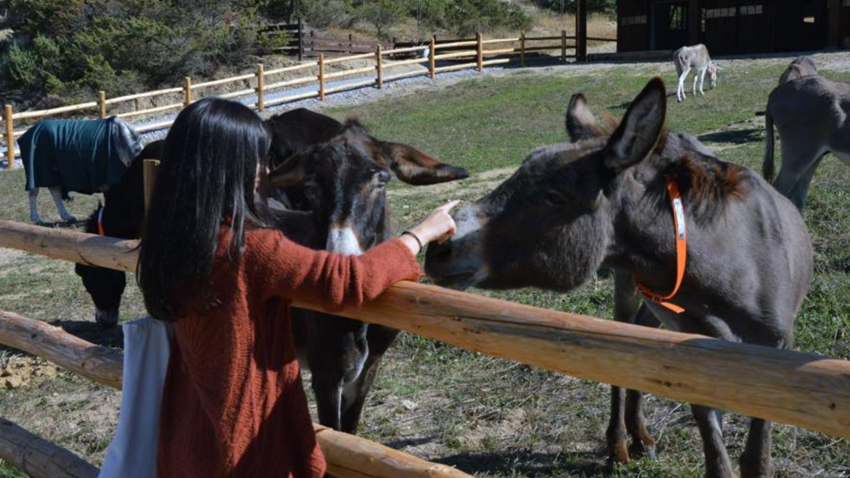
They love to have stables that are clean, to take strolls outdoors, to graze. The donkeys live a free life, they are not tied up or restricted, they spend their days in the pasture and only come indoors at night to sleep. They live a really good life.”
The donkeys often get visits from groups of schoolchildren or tourists, sometimes their former owners come here just to give the animal they love a big hug.

If one day you decide to drop in at the sanctuary in Banichan village, the donkeys will give you a hearty welcome – they are always glad to have visitors.
Photos: private library
The festive service for the consecration of the new Bulgarian Orthodox church in London is led by His Holiness Daniil , Patriarch of Bulgaria, who also officiated at the Ressurection Vespers on Saturday. Hundreds of lay people-official guests and..
The Martenitsa Festival was held in Brussels f or the third consecutive year . Cultural organizations from Bulgaria, Romania and Moldova presented their country's traditions related to the "Baba Marta" holiday, which heralds spring. The initiative..
Measurement equipment installed at the Bulgarian Antarctic base "St. Kliment Ohridski" has been collecting valuable data on solar activity and its relation to the Earth's magnetic field for two months. The research is part of Bulgaria's first polar..
Prayer served by His Holiness Bulgarian Patriarch Daniil on February 22, marks the beginning of the celebrations for the consecration of..
In the era of increased digitalization and the penetration of artificial intelligence into all spheres of our lives, the professions of people with high..
"Thracians, Wine and Culture" is the theme of a seminar at the archaeological complex "Valley of the Thracian Kings" near Kazanlak , which brings..

+359 2 9336 661
